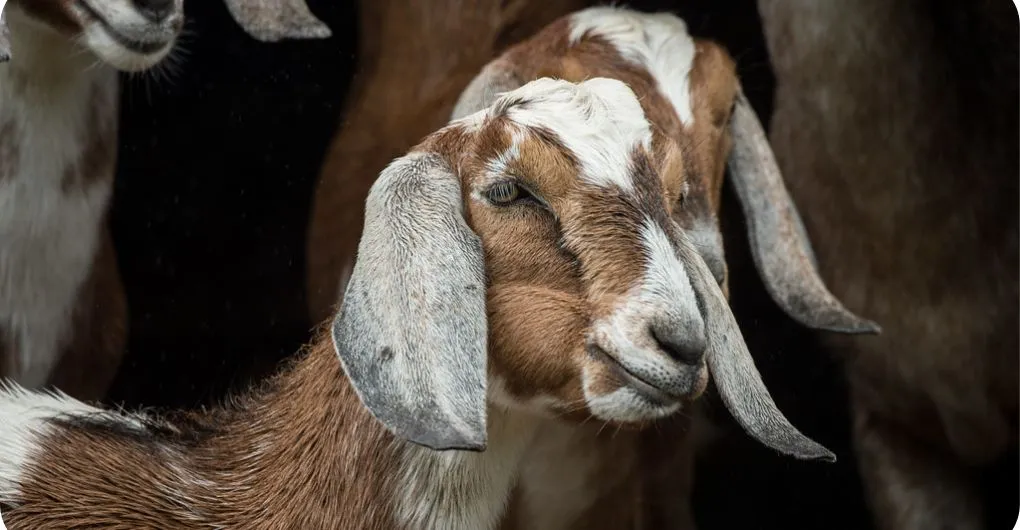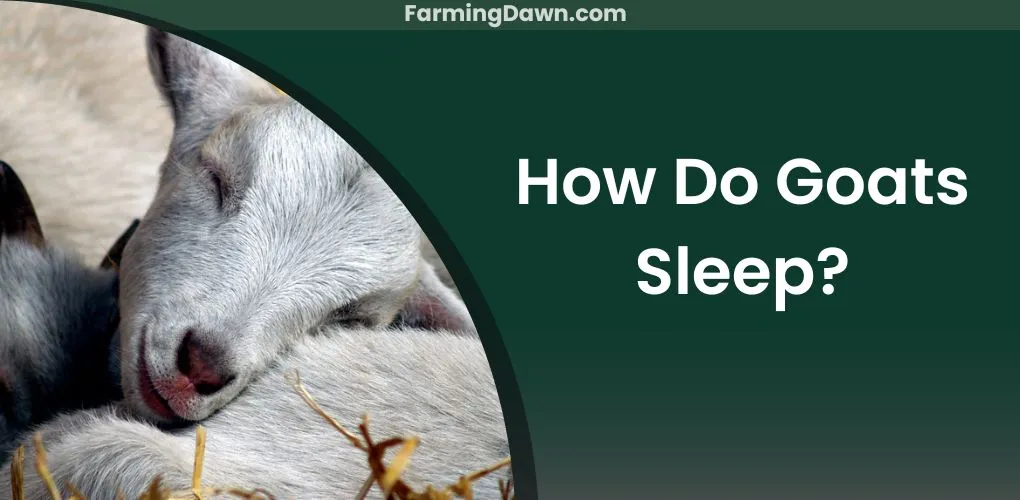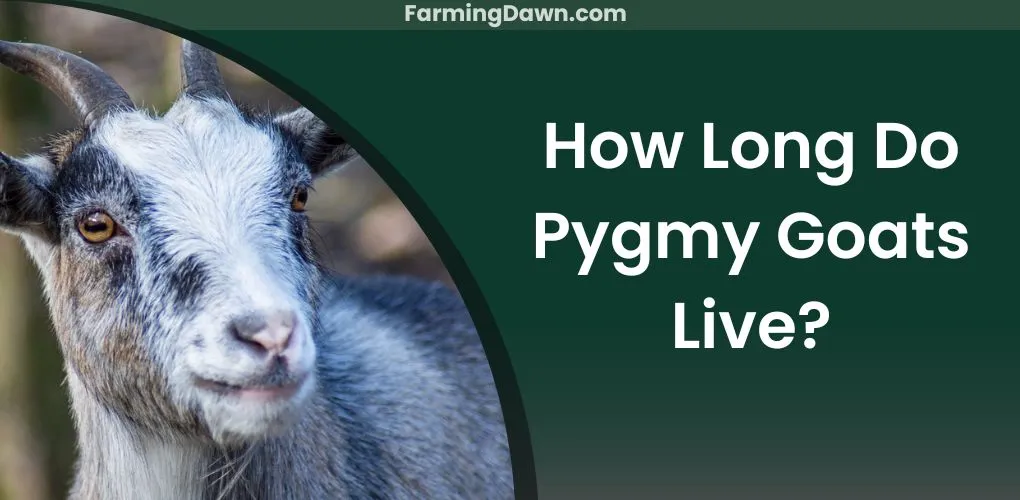We all know that getting enough sleep is important to keep us healthy, alert, and productive – but do the same rules apply to goats too? As a farmer do you ever wonder, how do goats sleep? It turns out that goats actually need a lot of slumbers to stay active and contented. As Joel Salatin said:
“Animals don’t live long if they don’t get their proper rest”
We can learn a lot from studying goats’ sleeping habits; understanding why they need so much shuteye may help us feel more connected with our four-legged friends. Our today’s topic will discover exactly what makes up a good night’s sleep for your favorite animal companion.
What Is The Sleeping Time Of Goats?
Goats are creatures of habit, so they tend to sleep in cycles. They’ll usually close their eyes at night and wake up during the day – but it can vary depending on the season or climate. Goats may also nap throughout the day if there is enough food and water around them. Usually, goats will get about 8-10 hours of shut-eye a day.
But this isn’t always the case for all goat breeds. Some may find themselves sleeping less than others due to different metabolic rates or simply because they’re more active than other animals. Additionally, young kids may require additional rest as well as nursing mothers who have just given birth. These goats must receive ample time for naps and good-quality feedings to stay healthy and alert.
Do Goats Sleep Standing Up?
Goats are curious and interesting animals, with unique characteristics that make them stand out from other creatures. Many folks want to know: do goats sleep standing up? And how do goats sleep while standing up?
The answer is yes – goats can sleep on their feet, although they usually take turns if more than one goat is in the same area. While sleeping while standing up may seem unusual, it’s actually a natural way for these animals to rest. Goats have strong leg muscles and joints which allow them to remain upright when asleep.
Further, goats use their horns as an extra support system while resting, allowing them to lean against something or even balance themselves better by using their horns. This behavior helps keep them safe from predators.
However, sleeping while standing up doesn’t mean that goats don’t need somewhere comfortable to lie down and rest. A goat sleeping platform or shelf allows your animal companion plenty of room to stretch out and relax during the day or night.
These platforms come in many sizes and shapes and provide a great spot for your goat to get some shut-eye without having to worry about being woken up suddenly by a predator.
Other Reasons For A Goat Sleeping While Standing Up
Illness
Illness can be a factor that causes goats to sleep while standing up. If they’re feeling ill or weak due to an infection, injury, or other ailments, then they may not have the energy to lie down and rest properly.
Pregnancy
Pregnant goats can also choose to stand while sleeping because their bodies are heavier and more uncomfortable than usual.
Unusual Sleep Pattern
Additionally, some goats just seem to prefer this position over laying down; it’s almost as if they find comfort in it.
Is It Normal For Goats To Sleep Standing Up?
Goats are naturally equipped to remain standing when asleep. Despite this, they usually sleep laying down on their sides instead of standing up. The interesting statistic is that goats can stay sleeping in the same position for 8-12 hours!
When Goats Do Not Sleep Standing Up
When it comes to why a goat chooses not to stand up and sleep, there are several factors at play. Here’s a quick list:
- Goats need a comfortable place to rest their heads (e.g., grassy fields).
- Goats must have an area where predators cannot reach them easily; so, sleeping with their legs outstretched makes them vulnerable prey.
- Standing up restricts blood flow to certain parts of the body resulting in cramps or muscle pain if done too long.
- Sleeping lying down provides added warmth from contact with the ground during colder months.
It’s quite fascinating how nature has provided these animals with the ability to remain standing even when fast asleep but also wired them with enough intelligence to realize when this could put them in danger and opt for more secure resting positions instead—like lying down rather than staying upright all throughout the night!
Do Goats Sleep With Their Eyes Open?
In the previous section, we discussed reasons why goats might sleep while standing up. But do they ever actually sleep with their eyes open? Goats are known to be curious creatures, and this curiosity extends into their sleeping habits too. Many people wonder if goats sleep with their eyes open or not – the answer is both yes and no.
But how do goats sleep with their eyes open? When baby goats fall asleep, they will close their eyes just like any other creature would. As they grow older, however, many adult goats can keep one eye open while dozing off. This could be a natural defense mechanism that helps them stay alert for predators when napping in an environment that may not be safe.
Goats also produce different types of sound to aware themselves and their shepherd as a siren for danger. As a farmer, you must also know different types of sound a goat makes to understand their needs and to protect them from predators.
Goats may also choose to sleep with both eyes closed but remain in a light state of awareness due to the unpredictability of predators or other dangers. This is known as unihemispheric slow wave sleep (USWS). In USWS, one hemisphere of the brain remains active – usually the right side – allowing them to still detect movement or sound nearby.

Goats have also been seen sleeping standing up with both eyes wide open so that they can awaken quickly if needed; this behavior is especially common among wild goats living in mountainous regions of the world.
Overall, it’s clear that baby goat sleeping looks quite different than adult goat slumbering! While some goats prefer to keep their eyes closed while catching some shuteye, plenty of others enjoy snoozing with at least one peeper half-open – whether out of necessity or simply as a preference remains a mystery!
Do Goats Sleep At Night?
Goats have different sleeping patterns than humans. While we sleep at night and are active during the day, goats are the opposite—active during the night and sleepy during the day. Here’s what you should know about goat sleep:
- Goats generally stay up at night, often until past midnight.
- They nap throughout the day, usually lying down for short periods in between bouts of grazing or playing with other animals.
- On average, goats spend 8-10 hours per day sleeping.
A lot of people think that because they’re awake at night, goats must be nocturnal creatures like owls and bats. Not so! Goats actually fall into a category known as ‘crepuscular’, meaning their peak activity is around sunset and sunrise when it’s not too hot or cold outside.
Their internal clock keeps them alert late into the evening to take advantage of this period of optimal conditions for grazing or exploring. Then once temperatures drop off again later in the night, they settle back down to rest until morning comes around again.
For our four-legged friends, sometimes an afternoon snooze just isn’t enough to keep those energy levels up so they can explore all night long!
What Position Do Goats Sleep?
Many people assume that goats sleep in the same position as other four-legged animals, standing on all fours. However, this common misconception could not be further from the truth. Goats are quite flexible and can contort their bodies into some rather unusual positions while they rest.
Goats prefer to sleep lying down or sitting up with one of their hind legs tucked underneath them. This allows them to keep a watchful eye out for potential predators without having to stand vigilantly for hours on end. It also makes it easier for them to get comfortable since they have plenty of options when it comes to finding a spot that suits them best. Some may even curl up in a ball if given enough space!
This is great news for goat owners because it means that your herd can snooze peacefully throughout the night without worrying about being disturbed by unwanted visitors. Plus, you don’t need to provide special sleeping quarters just for your goats—they will find somewhere suitable on their own!
How Do Goats Sleep? Video Guide
How Many Hours Do Goats Sleep?
Goats are generally quiet sleepers, typically with their heads up and eyes half-open. They can actually get most of their rest standing up! On average, a goat will sleep for about five to six hours each 24 hours; however, this varies based on the individual animal’s needs.
Factors affect Goat Sleeping Needs
Several factors affect how much sleep goats need:
- Age – Younger animals tend to require more sleep than older ones.
- Activity level – Goats who have been active during the day may need more shut-eye at night.
- Stress levels – If an animal is feeling anxious or overwhelmed it may not be able to relax enough to drift off into dreamland.
- Temperature – When it’s hot out, goats might take naps throughout the day as opposed to one long stretch of slumber at night time.
Their sleeping habits may also be affected by the breed of the goat. For example, Nachi goats will have different different sleeping patterns as compared to Kamori Goats. This difference is because of their living conditions and genetics difference.
At any rate, goats know what works best for them and adjust accordingly so you don’t have to worry too much if your goat isn’t sleeping according to some predetermined schedule. As long as they’re happy and healthy, let ’em doze when they please!
Do Wild Goats Sleep? How Do Wild Goats Sleep?
Wild goats, like their domesticated cousins, need plenty of sleep. But how do wild goats sleep and manage to get enough rest in the rugged and unpredictable terrain they call home?
How Do Wild Goats Sleep?
The answer lies in their unique adaptation skills. Wild goats have evolved to be able to seek out safe spaces for slumbering, often using natural formations such as rocky ledges or hollowed-out trees as shelter from predators.
Additionally, these animals are experts at napping on their feet – meaning that even when standing up, their bodies can enter a semi-sleep state where they remain vigilant yet relaxed. This skill allows them to stay alert and ready should danger approach while also catching some much-needed Zs.
This remarkable ability sets wild goats apart from other species which require more traditional sleeping arrangements; it is an important part of what makes them so well suited to surviving the harsh conditions found in nature.
What Affects The Goat’s Sleep?
Predators Affect the Goat Sleep
Goats sleep when they feel safe and secure. There are several predators that make them nervous such as:
- wolves
- coyotes
- bears
Because of these predators, goats will often try to stay in a group for protection.
Weather Affect the Goat Sleep
Even though they’re usually alert at night, the weather also affects their sleeping patterns; if it’s cold outside, they’ll huddle together to keep warm. On hot days they may find some shade to cool off and relax.
Environment Affect the Goat Sleep
The environment is important for the well-being of goats. They need an area that gives them enough space to move around freely and access sources of food and water easily. If there are too many predators nearby, goats won’t be able to relax enough to get good quality sleep – even during the daytime hours!
This could lead to health issues down the line, which is why it’s always best to provide your goats with a safe and comfortable place where they can rest peacefully without worrying about being attacked by an animal or extreme temperatures.
Why Do Herbivores Sleep Less?
Goats are an herbivore species, and like many other grazing animals they tend to sleep less than their carnivorous counterparts. The primary reason for this is because of the way they digest food.
Require Time to Digest Food
Herbivores have adapted over time to be able to consume large amounts of plant-based material to get enough nutrients from it. This requires them to expend more energy chewing through tough vegetation, which makes them burn more calories than those who eat meat or insects. As such, goats need more time during the day for grazing and digestion, so sleeping longer would mean missing out on precious eating opportunities.
To Remain Alert From Predators
In addition, goats also have a heightened sense of danger due to their size relative to predators—both natural and human-induced. A goat will usually wake up multiple times throughout the night as a result of its heightened awareness, ready to flee if needed.
Therefore, naps are preferred over long slumbering periods since they provide ample rest without leaving the animal vulnerable for too long. All these factors contribute to why goats tend not to sleep as much as their carnivorous friends do.
How Do Goats Sleep? Take Away
As we wrap up our discussion of how do goats sleep? We can say that goats are truly remarkable animals that can sleep in a variety of positions and locations. They may choose to lie down or even stand up, but what’s most interesting is the fact that they often do so with their eyes wide open!
No matter how you look at it, goats’ ability to rest while standing or lying down demonstrates just how incredible these creatures are. This behavior helps them stay vigilant for predators and other dangers, making it an important part of their survival strategy. If you liked this post share it with your friends who might be interested in livestock farming.





